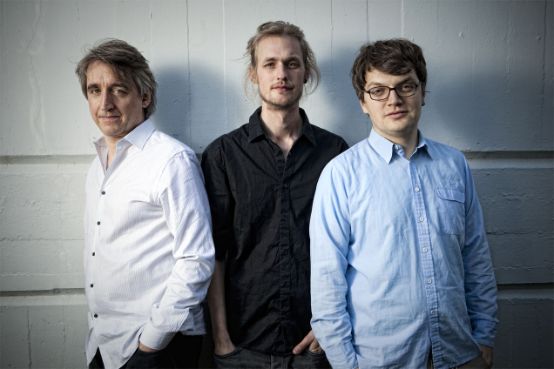Elegance and lightness
On their new album "Big Ship", Christoph Stiefel and his Inner Language Trio have found a confident greatness.

It is no coincidence that Christoph Stiefel, like Nik Bärtsch, has achieved international renown in the last decade. Both pianists from Zurich started out from concepts with relatively strict formal guidelines, which they established as their own personal expression. However, they only achieved greatness when they freed themselves from conceptual strictness and opened themselves up to freedom, not only in terms of interpretation.
Christoph Stiefel, who became known to a wider public with the jazz rock band Stiletto and as an accompanist for Andreas Vollenweider, has been using the medieval design principle of isorhythm as the basis for his compositions since the late 1990s. He has placed it in a jazz context, where it enables both a complex groove and a play of timbres. And he has constantly refined it.
This is not the only reason why the rhythmic models on the new album with his Inner Language Trio are only perceived as a formative concept in a few pieces. Big Ship has receded into the background. The free passages, in which Christoph Stiefel's sparkling playing can unfold as a soloist, also contribute greatly to the more personal expression. He does this in no way boastfully, but with unobtrusive originality. He displays the same elegant and at times even swinging lightness that also characterizes his fantastically confident interplay with German bassist Arne Huber and drummer Kevin Chesham from western Switzerland.
Christoph Stiefel, Inner Language Trio: Big Ship. Basho Records SRCD 44-2. www.christophstiefel.ch






.jpg)

